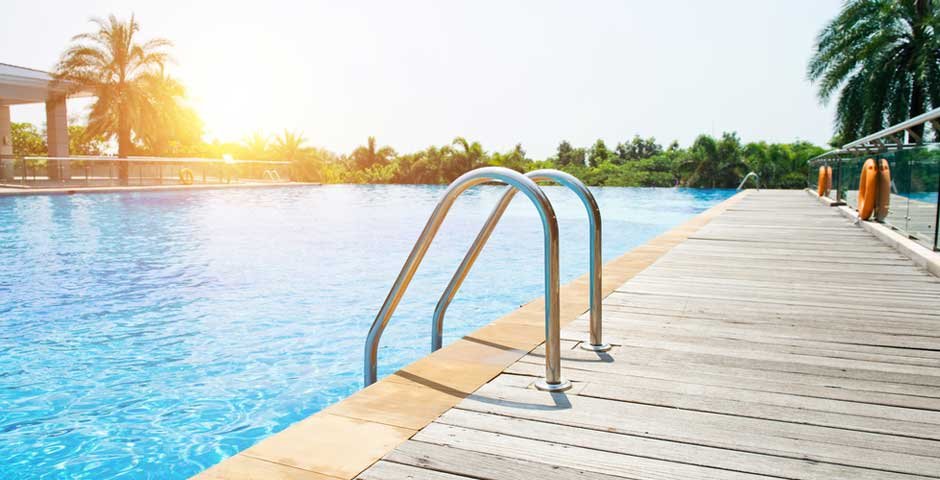As summer temperatures rise, and classes are released for summer, swimming pools start to fill up. Swimming pools are a popular destination for cooling off, enjoying a workout or spending time with friends. However fun the swimming pool is, there are safety risks to consider to avoid a personal injury incident.
Supervision and Lifeguards:
- One of the most crucial aspects of pool safety is adequate supervision. Whether you are a parent or an adult, it’s vital to actively watch children and weak swimmers at all times. Additionally, choose swimming pools with certified lifeguards on duty. Lifeguards are trained to respond swiftly in case of emergencies, providing an extra layer of protection and peace of mind. If there are no lifeguards attending the pool, make sure you are attentive to any children swimming or possible hazards.
Learn Swimming Skills and CPR:
- Enrolling yourself and your family members in swimming lessons can significantly reduce the risk of accidents. Knowing how to swim and understanding water safety rules and techniques can help prevent drowning incidents. Moreover, acquiring CPR (Cardiopulmonary Resuscitation) certification equips you with the skills to respond effectively in emergency situations, potentially saving lives.
Follow Pool Rules and Regulations:
- Swimming pools have specific rules and regulations in place to ensure safety for all users. Make sure to familiarize yourself with these rules and educate children about them. Adhere to age restrictions for certain areas, respect diving rules, and never swim alone or outside designated areas. By following these guidelines, you contribute to maintaining a safe environment for everyone.
Proper Poolside Behavior:
- Promote responsible behavior when near the pool. Running on wet surfaces can lead to slips and falls, so encourage walking or using designated non-slip areas. Avoid roughhousing or engaging in dangerous stunts that could result in collisions or injuries. Respect others’ space and be mindful of diving boards or slides, using them appropriately and cautiously.
Sun Protection and Hydration:
- Summer sun can be intense, so it’s crucial to protect your skin and stay hydrated. Apply waterproof sunscreen before entering the pool and reapply as directed. Wear protective hats, sunglasses, and clothing to minimize sunburn and heat-related illnesses. Additionally, encourage frequent water breaks to prevent dehydration, especially when engaging in physical activities in and around the pool.
Proper Pool Maintenance and Inspection:
- Choose swimming pools that adhere to proper maintenance and regular inspection protocols. Pools should have clean and well-maintained water, proper filtration systems, and appropriate signage indicating depth, hazards, and emergency procedures. If you notice any safety concerns or maintenance issues, notify the pool management or lifeguards immediately to ensure prompt resolution.
What To Do If Something Goes Wrong?
First things first, immediately attend to the person who is injured. Call for help right away, however, this is why someone who is CPR certified should be in attendance at all times. Once everyone is safe, make sure you record or take evidence of any negligence at the crime scene. If you, or someone you love, was hurt due to the fault of someone else at the pool you may be entitled to compensation. The lawyers at Lynch, Traub, Keefe & Errante can answer any questions you may about your personal injury case.
Enjoying a refreshing dip in the pool during summer can be a wonderful experience, but it’s crucial to prioritize safety to avoid personal injury accidents.Remember, prevention is key, and by taking proactive steps, we can all contribute to a summer filled with fun, relaxation, and most importantly, safety at swimming pools.






